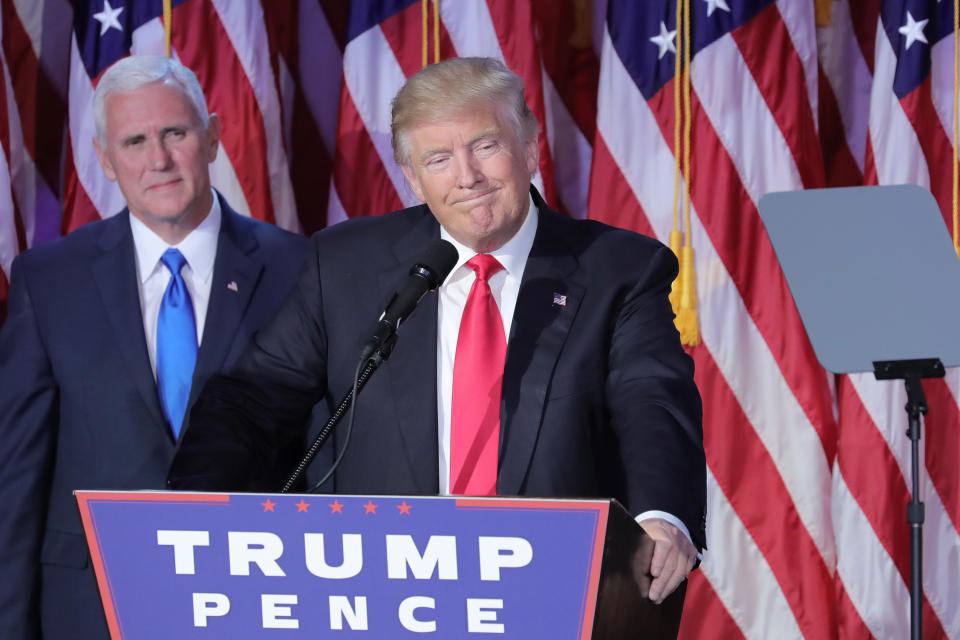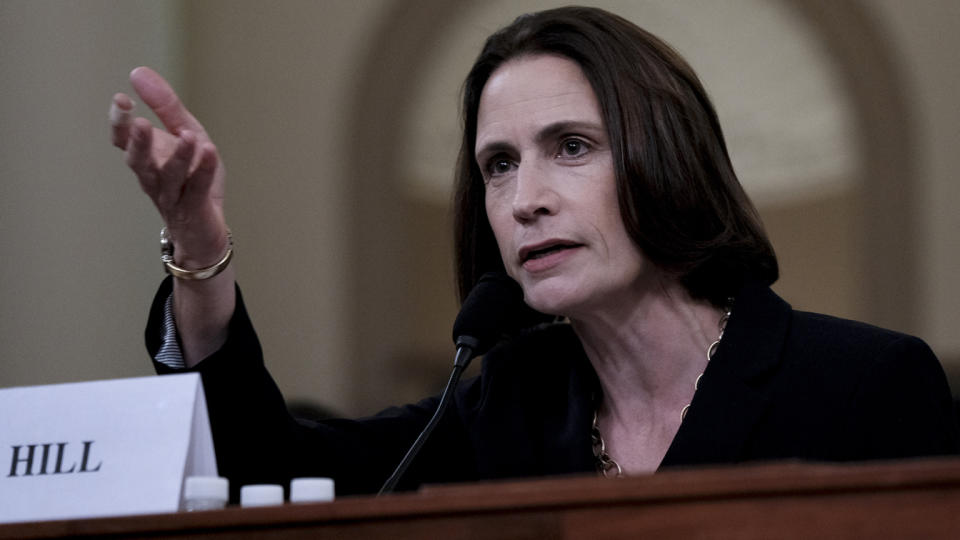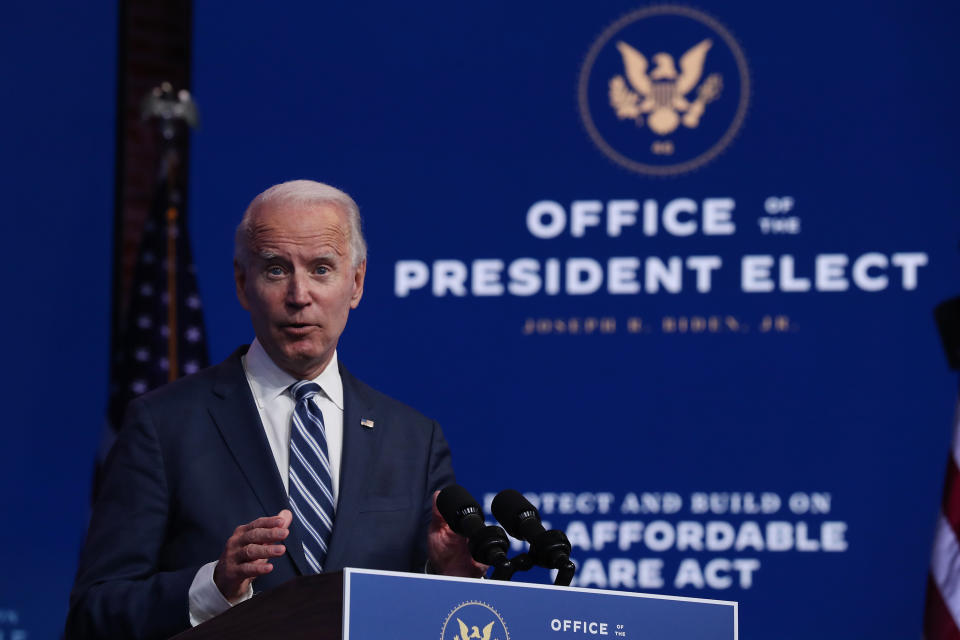Fiona Hill: The recent vote shows 'Trump was elected by Americans in 2016'
- Oops!Something went wrong.Please try again later.
- Oops!Something went wrong.Please try again later.
WASHINGTON — One of the key witnesses in the impeachment proceedings against the president says the 2020 election, widely regarded by security experts as the most secure in modern history, shows that Donald Trump’s win four years ago was legitimate.
“This was the most secure election we’ve ever had,” said Fiona Hill, previously a senior member of the National Security Council for Russia issues, referencing statements her former colleagues made in the days after the election.

Hill, who testified last November about Trump’s “fictions” regarding Ukraine, said the security of the election — in which Trump lost to Joe Biden but still got several million more votes than he received in 2016 — proves the previous results were “not manufactured by Russia and the intelligence services.”
Her comments came during an online event on transatlantic cooperation following the 2020 election hosted by the Brookings Institution on Monday morning. Hill, long regarded as a leading Russia expert, served for over two years in the Trump administration and was caught up in the investigation into Trump’s attempts to pressure the Ukrainian president to help investigate Biden and his son Hunter.
While critical of Trump’s attempts to manipulate foreign policy, Hill was clear on her views of claims that his election in 2016 was somehow illegitimate. “We have to accept that the electoral outcome in 2016 was not a fluke,” she said.
Hill said that Russian interference in the 2016 election “probably did have some impact” but fell far short of throwing the election to Trump. “We do have to have an honest acknowledgment of the fact that whether people liked it or not, Trump was elected by Americans in 2016,” she said.
Moving into the future, Hill recommended that Russia be refocused on as a national security priority once again.
She urged “collective joint action” between European nations and the United States to push back against Russia’s provocations worldwide, from hacking the German Bundestag to spreading disinformation about the downing of Malaysia Airlines Flight 17, ultimately linked to Russian military officers. She suggested forming a “task force” to address Russia’s global actions. “It’s unmistakable that this is no longer directed at one country,” she said.

Hill’s comments followed statements last week by federal, state and local officials who worked to secure the presidential election and declared that the Nov. 3 election was “the most secure in American history.”
In a joint statement released by the Elections Infrastructure Government Coordinating Council, whose members include government officials from a number of agencies, officials stated unequivocally that “there is no evidence that any voting system deleted or lost votes, changes votes, or was in any way compromised.”
Those remarks mirrored the cautious celebrations of government officials on election night, who told reporters on calls scheduled throughout the day that the years of effort had paid off.
The process wasn’t without its challenges. In the months leading up to Nov. 3, disinformation raged through social media, and China, Russia and Iran all attempted to interfere in the election, according to official disclosures made by top intelligence officials. But those efforts didn’t seem to amount to the same kind of mayhem and disruption they produced in 2016.
Americans showed up to vote in record-breaking numbers — a factor Chris Krebs, the director of the Department of Homeland Security’s Cybersecurity and Infrastructure Security Agency, emphasized repeatedly as a sign that the government’s efforts were working. By voting in droves, Americans showed they were confident that their votes would count.

Despite Trump’s and other GOP officials’ continuing attempts during the election to amplify Russian-supported propaganda about Biden’s ties to Ukraine, U.S. government officials took action against that behavior. In August, Bill Evanina, the director of the National Counterintelligence and Security Center, called out pro-Russia Ukrainian parliamentarian Andriy Derkach specifically for “spreading claims about corruption” to “undermine Vice President Biden’s candidacy.” And on Sept. 10, the Treasury Department designated Derkach for “attempting to interfere in the U.S. electoral process,” identifying him as “an active Russian agent for over a decade.”
Graham Brookie, the managing editor and director of the Atlantic Council’s Digital Forensics Research Lab, which is focused on tracking disinformation, told Yahoo News the fact that Russia almost succeeded in successfully amplifying disinformation through the White House and top congressional officials “freaked [him] out the most.”
“Russia in particular didn’t need a hack and leak or to successfully engage in social media operations — they just needed to find the right platforms for their given narrative within the right-wing information ecosystem. That almost succeeded with a literal U.S. senator. It succeeded multiple times with the president’s personal lawyer,” he said, referring to Rudy Giuliani, who went on multiple trips to Ukraine seeking information on the Bidens.
Brookie described the government’s decision to publish specific details about Derkach as maybe “the most impactful thing that [the Office of the Director of National Intelligence] did this entire election cycle.”
“The system worked, but barely, and that’s scary,” he concluded.
Hill, the Russia expert, drew another lesson from the success of the 2020 election and the events of recent years.
“Russia,” she said, “has to be taken out of the domestic political issue.”
_____
Read more from Yahoo News:



